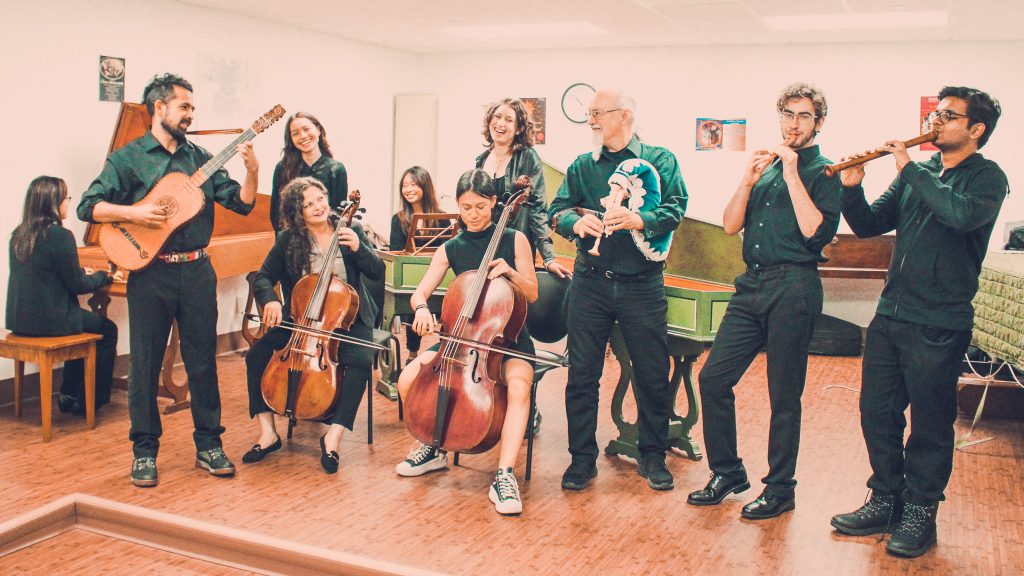It is tempting to fit diversity, equity, and inclusion (DEI) into a box labeled campus practice and politics. But for the Early Music Ensemble at The UCLA Herb Alpert School of Music, DEI is about faithfully recovering historical worlds through better performance and scholarship.
“For so long, music history has been taught through the lives of great composers,” said Marylin Winkle, lecturer in musicology and director of the ensemble. “And that is the problem.”
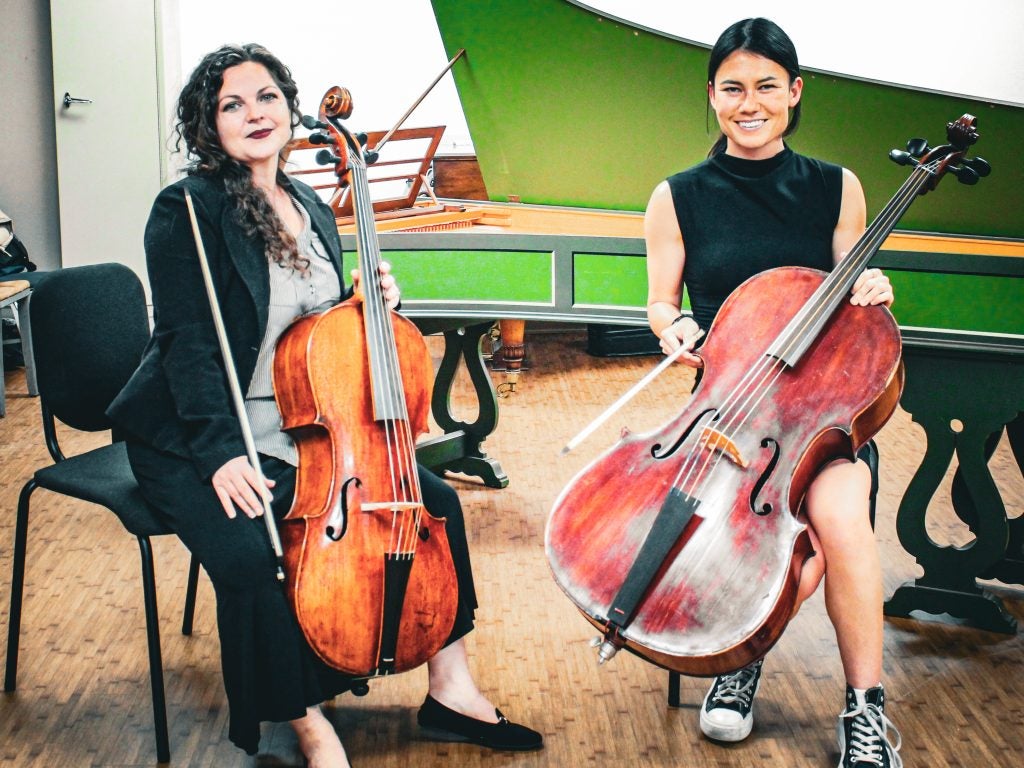
The Early Music Ensemble practices and performs vocal and instrumental music on period instruments from historical periods prior to the nineteenth century. UCLA music professors had founded a collegium devoted to performing pre-1750 composers in the 1960s. Thanks to their dedication, the School of Music possesses a fine collection of period instruments for students to use.
In 2008, Elisabeth Le Guin, (now professor emerita), formally established the group as a standing ensemble, available for students to take for credit. As founding director, Le Guin challenged the western canon and some of its hidden biases, even as she focused on recovering historical repertoire prior to the eighteenth century. It meant programming a little less J. S. Bach, a little more Francesca Caccini.
Winkle has continued this approach.
“Oftentimes, early music ensembles took a straight historical approach, restricting their performances to French Baroque in one season, then Spanish Baroque the next,” said Winkle. “Elisabeth Le Guin called this the ‘area studies’ approach. It segregates music by time period and by geography.”
It also inadvertently builds a canon. Early music ensembles look for the best representative pieces of particular periods, and end up programming the same composers over and over again. They also neglected other aspects of early music making. Music often traversed regions. Musicians improvised music all their own. Audiences and patrons shaped music.
How early music ensembles treat their audiences is a matter of some concern for Winkle, who published an article earlier this year about audience inclusivity at early music concerts. The article stemmed from an experience she had after being asked to leave an audience hall because her child was walking in the aisles. Silently walking in the aisles.
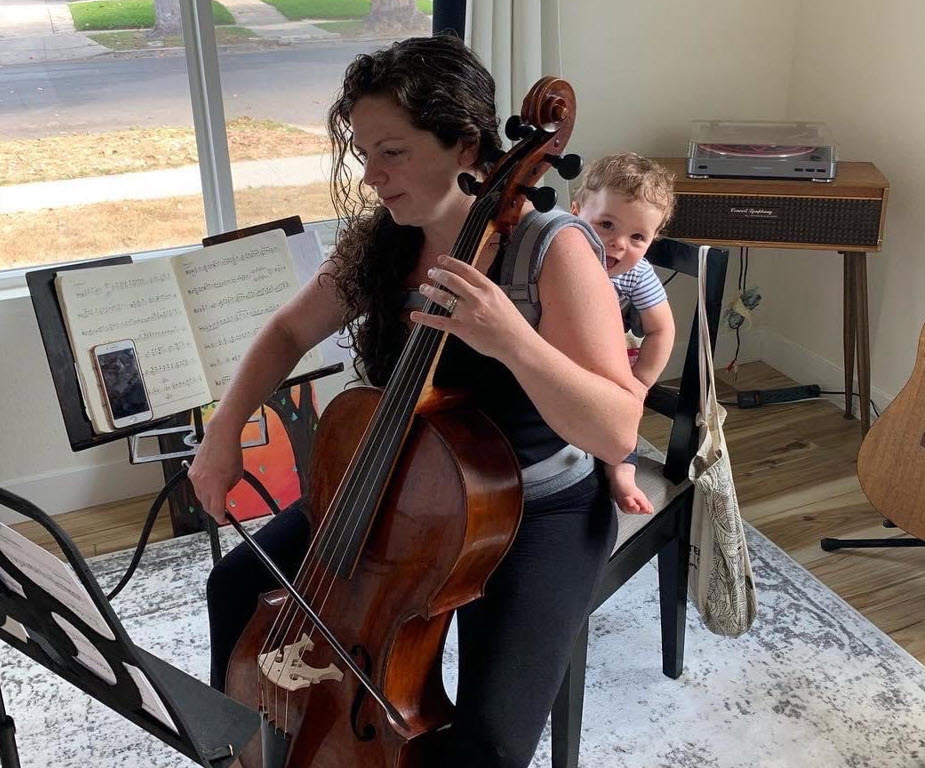
Exiling children and their caretakers from the concert hall hardly created an inclusive environment. Even more curiously, it imposed nineteenth-century concert values at a concert devoted to the meticulous reconstruction of early music.
“Audiences used to talk, eat, drink, smoke, and throw vegetables at performers,” said Winkle. “Early modern audiences certainly weren’t shushed for clapping between movements.”
Winkle brings her inclusivity mindset to planning Early Music Ensemble concerts at UCLA. Audiences are invited to participate and react. She also brings the mindset to programming, which means tackling the problem of the canon and its flattening of the early music repertoire.
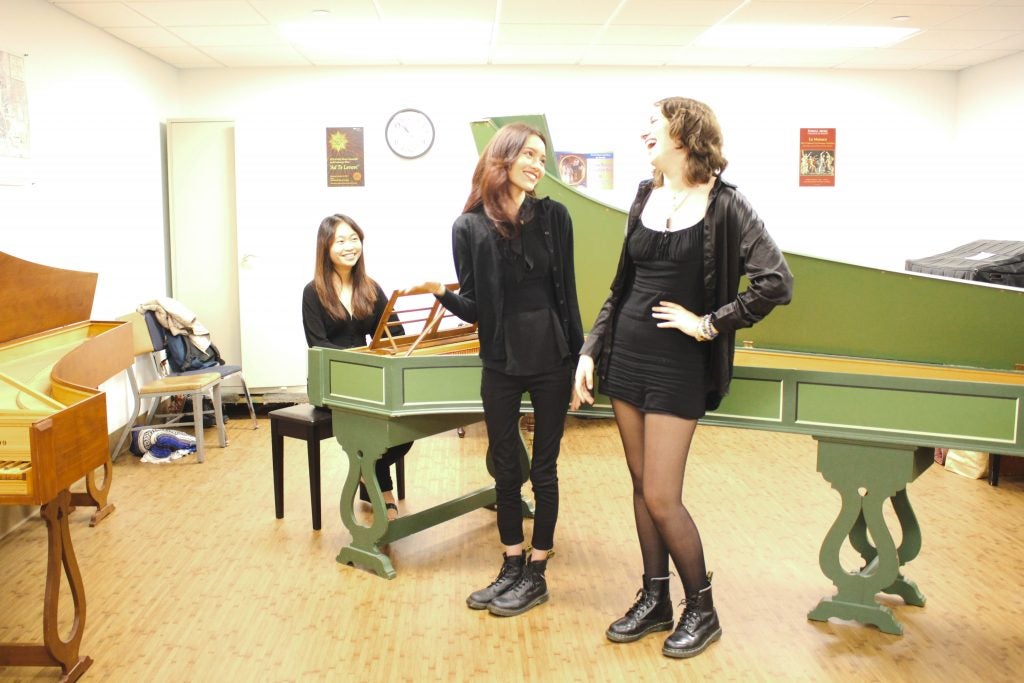
“One way to liberate yourself from the canon,” explained Winkle, “is to get over our obsession with composers. If we understand that musicians and audiences and patrons played a part in making music, then we can stop thinking about the composer as the lone person responsible for the music on the page.”
Winkle often uses unorthodox means to find content. The Early Music Ensemble’s 2021-22 season explored the intersection between historical performance and climate, devoting one quarter each to water, wind, and fire. The themes were inspired by California’s climate, but held a universal and timeless quality to them.
“Planning the repertoire this way allowed us the room to choose pieces from across space and time,” said Winkle. “We could think about how our instruments have survived across time, what storytelling is, and how cultures have survived. And we made a conscious effort to find music by women and by composers of color. It was liberating.”
The program, and the Early Music Ensemble’s performance of it, proved so evocative, that the ensemble was just one of just four ensembles chosen in all of North America for Early Music America’s Young Performers Festival in 2022.
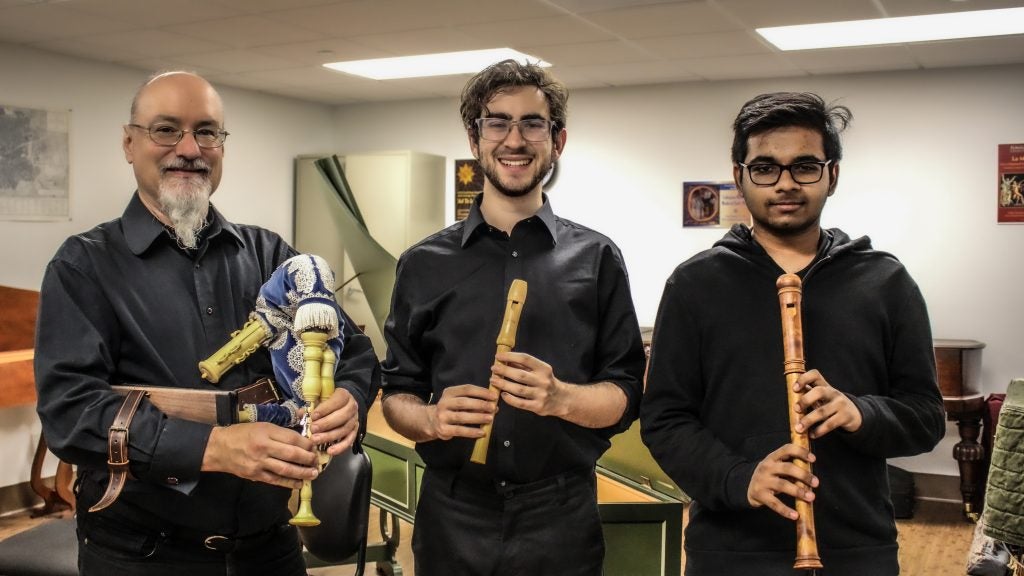
That scholarship of the early modern world intersects pressing, contemporary questions might surprise some. Not Winkle, for whom the recovery of these lost stories—particularly women composers and composers of color—is a vital scholarly project.
“If we want inclusivity, we ought to begin with our own research,” she said.
